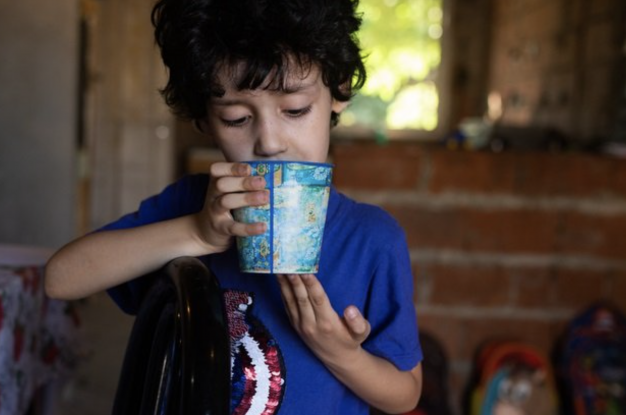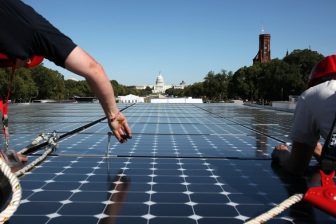
Training caregivers in Argentina to transform autistic children’s lives
The World Health Organisation (WHO) in Argentina is working with child autism non-profit partner PANAACEA to support caregivers of children with developmental delays and disabilities in the capital Buenos Aires, through the Caregiver Skills Training (CST) programme.
Gabriel was diagnosed with autism when he was three years old. At the time, he did not speak or interact, including with his family. As a mother of four and a school teacher, Karina struggled to care for her family and find Gabriel the support he needed.
“When he was little, I tried in many ways, but I couldn’t succeed. I couldn’t find ways to help him express himself, communicate,” Karina said.

The programme has been made available for adaptation and field testing in several countries. In Argentina, a local adaptation team, coordinated by the WHO country office and Autism Speaks, trained international partner PANAACEA to facilitate the programme four years ago.
Dr Sebastian Cukier, a child and youth psychiatrist and co-founder of PANAACEA, says while the CST programme can benefit all families, it is particularly relevant for families in situations of social vulnerability, as it offers them access to knowledge and support they often miss out on.
“Children don’t need a diagnosis, which is often a barrier, as some families don’t have the resources to make a diagnosis,” Dr Cukier said. “The fact that the programme only requires concern from caregivers regarding their children’s development allows it to reach many more people.”
The programme consists of group sessions and individual home visits, focused on training caregivers how to use everyday play and home activities and routines as opportunities for learning and development. The sessions specifically address communication, engagement, daily living skills, challenging behaviour and caregiver coping strategies.
“Maybe you think the programme will reveal something extraordinary, but it doesn’t,” Karina said. “It’s about how to live your daily life. And how to help [your child] develop as an independent person.”

Dr Nora Grañana, a child neurologist with the Ministry of Health of the Autonomous City of Buenos Aires, said that on-going field testing shows the programme has significant results.
“The government has professionals in health centers who, if trained, could sustain the intervention on an ongoing basis,” Dr Grañana said.
During and after participating in the programme, Karina saw significant improvements in her ability to connect and communicate with her son through activities, games, and home routines like teeth brushing, getting dressed and washing the dishes. Karina also found the group sessions empowering.
The COVID-19 pandemic has had major impacts on mental health but particularly on that of women and those taking care of young children with developmental disabilities.
In late 2020, with the support of WHO and Autism Speaks, the CST programme was adapted to an online version so that it has been able to continue during the pandemic. PANAACEA also remotely trained four facilitators in three community centers in the Buenos Aires region.
While 2020 was a challenging year, Karina said it was very positive for her family, as they were able to spend more time together at home.
”I’m glad with Gabriel’s achievements…You have to value what he can do. And encourage him to move forward. And focus on the successes. That is the important thing. Highlighting what he can do. And keep on working on the difficulties,” Karina said. “We can face life this way, thanks to the programme.”

In Argentina, CST is a collaboration of WHO, Autism Speaks, PANAACEA and RedEA funded by the Ministry of Human Development and Habitat of the City of Buenos Aires and PANAACEA.
Source: World Health Organisation.



 Gabriel walks in his neighborhood with his mother, Karina, and two of his brothers. © WHO / Daiana Valencia
Gabriel walks in his neighborhood with his mother, Karina, and two of his brothers. © WHO / Daiana Valencia

